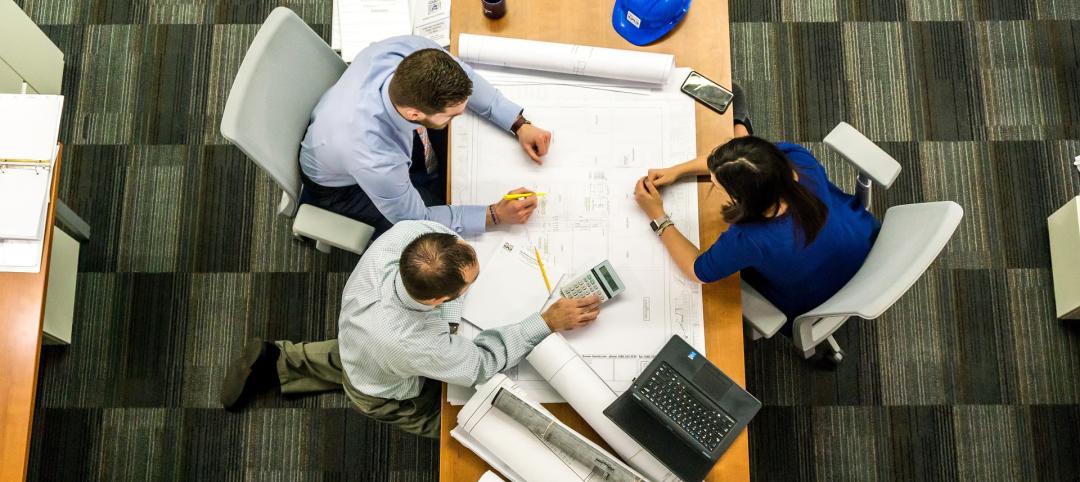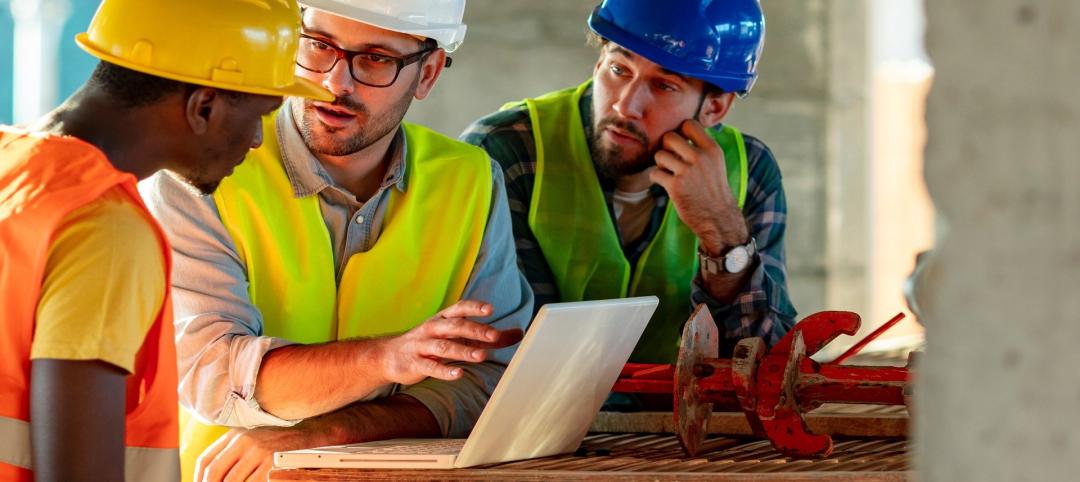Slower growth in the general economy, brought on by seemingly mounting national and international vulnerabilities, is putting downward pressure on the construction industry, whose sectors expanded last year by 20% or more but are moderating to single-digit growth levels.
That’s the viewpoint of the American Institute of Architects’ semiannual Consensus Construction Forecast Panel, which expects building construction spending to increase by just under 6%, its growth rate through the first half of the year, through 2017.
To view an interactive chart comparing the forecasts from the seven market watchers on the Panel, click here.
AIA puts out its Consensus to project business conditions for the coming 12 to 18 months. Kermit Baker, Hon. AIA, the Institute’s chief economist, notes that several factors—job growth, consumer confidence, low interest and inflation rates, and a trending single-family housing market—offer positive economic signs.
Good reception is also coming from AIA’s Architectural Buildings Index, a historically reliable indicator of future spending in the nonresidential sector. The latest data indicate that architectural firms are increasing their backlog of project activity.
Still, there is a growing list of issues “that threatens to unhinge this economic expansion, both national and international,” Baker writes.
These include:
•A weak manufacturing sector, which has declined 13 of the past 17 months dating back to the beginning of 2015.
•Sagging international economies that could diminish U.S. exports. China, Brazil, and Russia “continue to face difficulties,” observes Baker. And the U.K.’s recent split from the European Union could instigate more restrictive trade policies. On the other hand, a stronger U.S. dollar provides incentives for increasing imports.
•The upcoming presidential election, and the “unusually high” level of uncertainty regarding post-election policies.
Baker cites a recent Urban Land-generated consensus forecast of real estate trends that suggests “we are in the latter stages of this current real estate cycle,” where vacancy rates are expected to increase, and rent increases to slow, for multifamily housing and hotel rooms through 2017 and 2018.
Spending on hotel construction is on pace to increase by a still-healthy 7.6% in 2017, but down from 17.9% in 2016, according to AIA’s consensus forecast. Office space spending will grow by 14.7% this year, but only by 7.5% next.
The institutional side is expected rise by 6.7% this year and next. Healthcare facilities spending should increase to 5% next year, from 2.3% in 2016. Public Safety is expected to recover from a 3.7% decline to a 3.3% gain next year. Spending on Education construction, one of the industry’s big tickets, should see a slight downtick in growth, to 6.3% in 2017 from 6.5% this year.
Related Stories
Hotel Facilities | Oct 29, 2024
Hotel construction pipeline surpasses 6,200 projects at Q3 2024
According to the U.S. Hotel Construction Pipeline Trend Report from Lodging Econometrics, the total hotel pipeline stands at 6,211 projects/722,821 rooms, a new all-time high for projects in the U.S.
Office Buildings | Oct 21, 2024
3 surprises impacting the return to the office
This blog series exploring Gensler's Workplace Survey shows the top three surprises uncovered in the return to the office.
MFPRO+ Research | Oct 15, 2024
Multifamily rents drop in September 2024
The average multifamily rent fell by $3 in September to $1,750, while year-over-year growth was unchanged at 0.9 percent.
Contractors | Oct 1, 2024
Conflict resolution is a critical skill for contractors
Contractors interact with other companies seventeen times a day on average, and nearly half of those interactions (eight) involve conflicts, according to a report by Dodge Construction Network and Dusty Robotics. The study suggests that specialty trade contractors, in particular, rarely experience good resolution from conflicts.
Contractors | Oct 1, 2024
Demographic, societal trends bode poorly for future construction workforce
U.S. employers will soon face “the largest labor shortage the country has ever seen,” according to a report from Lightcast, a labor market data and analysis firm. The problem will be especially acute in fields like plumbing, HVAC, and auto maintenance.
Laboratories | Sep 27, 2024
Traditional lab design doesn't address neurodiverse needs, study finds
A study conducted by ARC, HOK, and the University of the West of Scotland, has revealed that half (48.1%) of all survey respondents who work in laboratory settings identify as neurodivergent.
AEC Tech | Sep 25, 2024
Construction industry report shows increased use of robotics on jobsites
Nearly two-thirds of contractors surveyed, who cited use of robotics on jobsites, are either using monitoring and/or service/labor robotics.
The Changing Built Environment | Sep 23, 2024
Half-century real estate data shows top cities for multifamily housing, self-storage, and more
Research platform StorageCafe has conducted an analysis of U.S. real estate activity from 1980 to 2023, focusing on six major sectors: single-family, multifamily, industrial, office, retail, and self-storage.
Student Housing | Sep 17, 2024
Student housing market stays strong in summer 2024
As the summer season winds down, student housing performance remains strong. Preleasing for Yardi 200 schools rose to 89.2% in July 2024, falling just slightly behind the same period last year.
Adaptive Reuse | Sep 12, 2024
White paper on office-to-residential conversions released by IAPMO
IAPMO has published a new white paper titled “Adaptive Reuse: Converting Offices to Multi-Residential Family,” a comprehensive analysis of addressing housing shortages through the conversion of office spaces into residential units.

















